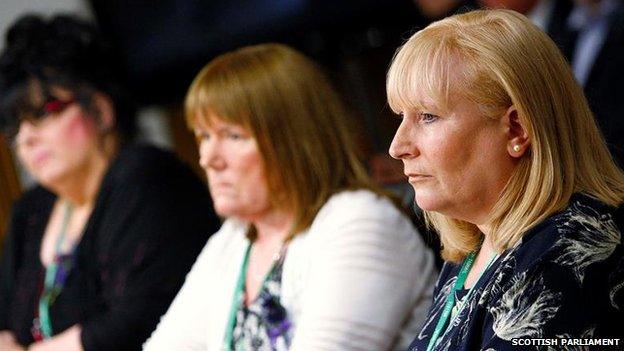Mesh implants still used in Scotland despite suspension call
- Published
Gillian says of her mesh implant: "life as I knew it changed completely"
Hundreds of mesh implant operations have been performed in Scotland despite ministers recommending their suspension.
Figures obtained by the BBC show that 404 women have received mesh and tape implants since the health secretary called for the suspension in June 2014.
The Scottish government said the position had been made clear.
Those boards still using mesh implants said they discussed all the potential risks with patients before surgery.
The procedure is used to ease incontinence and pelvic prolapse.
Over the past 20 years, more than 20,000 women in Scotland have had mesh or tape implants. But some have suffered painful and debilitating complications.
In 2014 a number of campaigners gave evidence to the Holyrood Petitions Committee. Several of them were in wheelchairs - unable to walk because of surgical complications.
As a result, the then Health Secretary Alex Neil wrote to health boards requesting a suspension in the use of mesh implants by the NHS in Scotland pending an investigation into their safety.
He told MSPs he was "deeply troubled" by the issue.
Since then, Greater Glasgow and Clyde has used the implants more than any other health board - with 178 mesh and mesh tape implants. NHS Lothian have performed 146 mesh and tape implants.
A number of health boards - including Grampian, Ayrshire and Arran, and Tayside - have stopped using mesh implants altogether.
The figures obtained by the BBC show some health boards continued their use in the past 12 months - even after Health Secretary Shona Robison re-issued calls for their use to be suspended and apologised to women left with complications.
NHS Borders, Fife, Dumfries and Forth Valley have used a very small number of mesh implants since the "moratorium".

Gillian's story
Gillian Watt, from Renfrew, had a mesh implant in 2011.
"They were giving me a hysterectomy", she said. "They said they'd just lift my bladder whilst I was in. I thought it would fix me but it has completely destroyed my life. I lost my job, my career. Everything."
Gillian is now 47 years old. She lives in almost constant pain and has to use crutches or a wheelchair if she needs to walk any distance.
"I can't even go round the supermarket," she said.
She has since had three operations to try to remove the mesh but has been told it would be impossible to fully reverse the procedure as it was now stuck to her organs.
The worst thing, she said, was not being able to fully look after her one-year-old granddaughter.
"When I went there was nothing about side effects," she added. "Nothing at all. They said they would just fix me.
"I just can't believe the health boards are still using mesh. How can they do that when two health secretaries told them to stop? I went to an appointment with my friend's 19-year-old daughter who has bladder problems and they started talking about using it. She's just 19."

The review, commissioned in 2014, is not yet complete, but research looking at the use of mesh and tape over the past 20 years - commissioned by NHS Scotland's Information Services Division (ISD) - is due to be published this week.
Hundreds of women are suing health boards and manufacturers over the use of the implants.
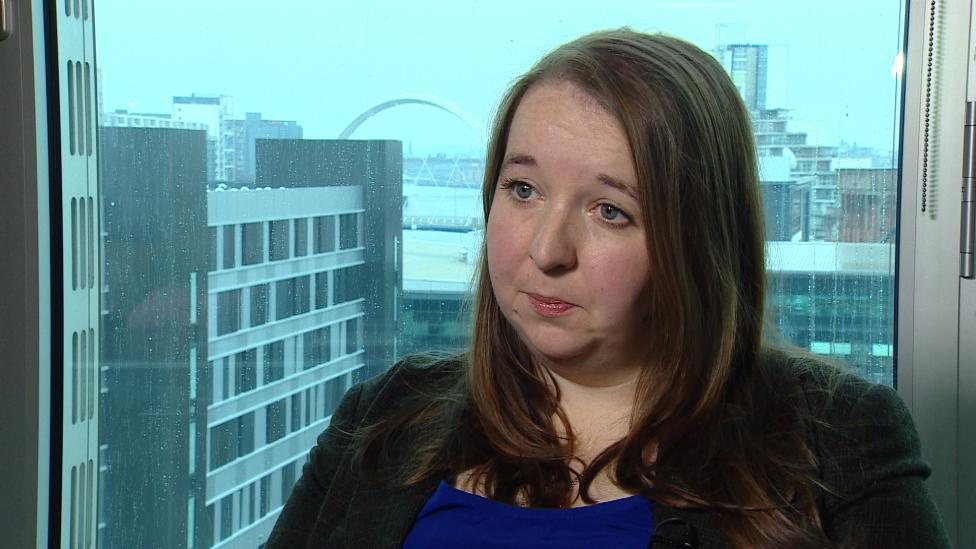
Lawyer Lindsay Bruce said the use of the implants was a "scandal"
Lindsay Bruce, of Thomsons solicitors, has more than 140 clients taking cases.
She said: "This is a global health scandal and one of the largest-scale health scandals we have ever seen.
"I don't know why health boards are continuing to use mesh but we know that since the moratorium a number of women have been offered mesh implants or have had mesh implants.
"A number have since suffered complications.
"We know because a number of these women are now involved in litigation. My concern is that the numbers are just going to keep rising because the health boards keep using mesh."
A Scottish government spokesman said: "We've made clear that health boards should consider suspending the use of the synthetic mesh products in surgery for pelvic organ prolapse and stress urinary incontinence.
"However, if women are experiencing very distressing symptoms and want to proceed then the Scottish government agreed that, in these circumstances, the service should still be offered.
"This is clearly a matter between the clinician and the patient and the procedure is only undertaken with the informed consent of the patient, following a full explanation and discussion of the potential risks. Since 2013/14, we've seen a significant decline in such procedures taking place across Scotland."
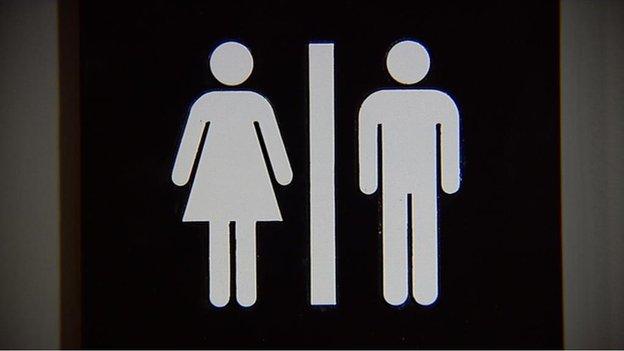
The implants are commonly used to relieve incontinence, often as a result of childbirth
The Medicines and Healthcare products Regulatory Agency (MHRA) has the final say on the use of mesh implants on a UK-wide basis.
In 2014, it said its research showed that, while a small number of women had experienced distressing effects, the benefits of these tapes and meshes outweighed the risks and could help in dealing with upsetting conditions such as urinary stress incontinence and pelvic organ prolapse.
Dr David Farqhuarson, medical director of NHS Lothian, said: "In all cases we discuss the treatment options available to our patients, ensuring that they are aware of the risks involved in any of our surgical procedures.
"Where a patient wishes to go ahead with a mesh implant a thorough consultation process follows.
"This involves the patient spending additional time in clinic to discuss their care and to ensure that they are prepared, educated and informed about the different options available to them before proceeding."
A spokeswoman from Greater Glasgow and Clyde said it continued to offer mesh implants to "certain patients who meet the clinical criteria for this procedure".
She added: "At their initial outpatient appointment all patients who are assessed and require mesh procedures have the opportunity to fully discuss the risks and benefits of treatment options with their consultant before they are listed for surgery.
"In addition, they are given the patient information booklet provided by the Scottish government."
- Published19 December 2016

- Published6 October 2015
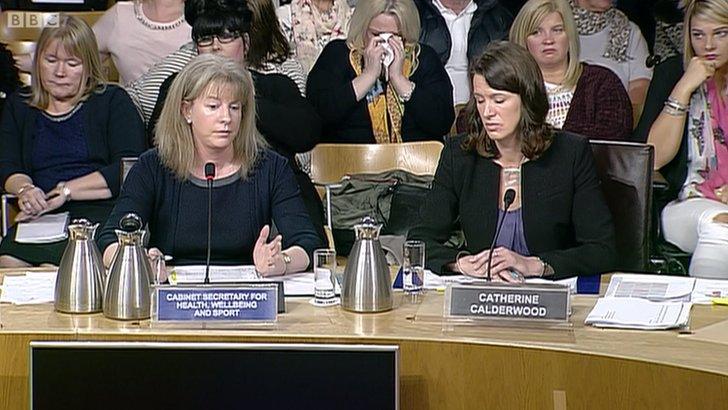
- Published1 March 2015

- Published24 February 2015
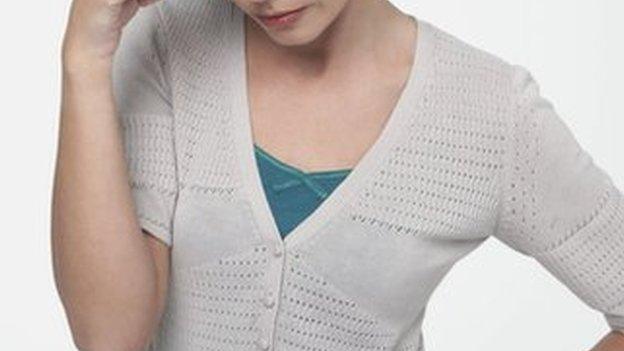
- Published3 June 2014
